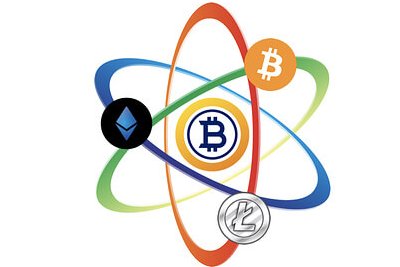

To buy, sell, or trade cryptocurrencies, most people currently have to use an exchange. One of the more exciting developments on the horizon though is atomic swaps, which could revolutionise the way we trade cryptocurrencies.
In its simplest form, an atomic swap allows two people to trade their two different cryptocurrencies from wallet to wallet. Currently, the only way to swap Bitcoin for Litecoin is to use a centralised exchange. Here is how an atomic swap can benefit traders.
Exchanges can be contentious. Whilst currently absolutely necessary in the cryptocurrency industry, this does not mean that they are immune to criticism. The most recent issue that has been highlighted with exchanges is the faking of volume. This can make exchanges appear more active and popular than they are in reality. Therefore, they can then attract more ICOs and charge a high listing fee and increase their revenue. This is just one tactic that unregulated exchanges have used in the past.
For those who trade regularly, one of the main gripes of using exchanges is the fees that are charged. Whilst small, these can add up and hit your portfolio. As we have seen recently as well, many exchanges are vulnerable to hacks, so keeping your cryptocurrency in your own wallet is much safer than storing them on an exchange.
Another issue for many Cypherpunks is that regulated exchanges require KYC, which crypto anarchists view as harmful to their privacy. Atomic swaps can render exchanges obsolete though.
What makes an atomic swap particularly interesting is that you can trade (or ‘swap’) different cryptocurrencies peer to peer, so the need for exchanges is greatly reduced. Atomic swaps greatly increase the idea of decentralisation and trustlessness that are key tenants of cryptocurrencies.
The idea was first theorised in 2012 and then advanced in 2013 by Tier Nolan. Although it has been six years since then, atomic swaps are not yet widely available with the technology still very much in the testing phase.
To give an example, if I want to swap my Bitcoin with a friend’s Litecoin, we agree on a price and then these currencies are swapped with no fear of either him or me backing out of the trade. If one person does change their mind, then the other will simply receive a refund.
There are two different types of atomic swap. The first is on-chain, meaning it is processed on the blockchain. The second is off-chain, meaning the swap is processed via a second layer solution such as Lightning. Bitcoin and Litecoin were the first to achieve an off-chain swap via the Lightning Network. For an on-chain swap, both cryptocurrencies must support hash time locked contracts and use the same hashing algorithm. Decred and Litecoin are examples of two cryptocurrencies that have completed an on-chain swap.
Komodo is another cryptocurrency that has investigated the use of atomic swaps heavily. The company provided a first when it was able to swap Ethereum for Dogecoin via an atomic swap.
Currently, there are still quite a few issues that need to be ironed out before we see atomic swaps more commonly. The two biggest limitations are that generally the cryptocurrencies used for on-chain swaps need to have hash time locked contracts and the same hashing algorithm. This instantly limits the amount of cryptocurrencies capable of partaking in atomic swaps.
For off-chain swaps using the Lightning Network, again there are very few cryptocurrencies that are currently using Lightning. Even on Bitcoin, whilst growth has been impressive, Lightning is not yet near full release.
Like many improvements in cryptocurrency, these advancements take time, as a bug in the code can have major consequences. Therefore, remaining patient is key.
The main benefits for traders is you can avoid all the pitfalls that exchanges provide. Firstly, the coins remain in your wallet so you are less likely to succumb to a hack (as long as your own security is tight).
For those keen on privacy, KYC will not be necessary to perform an atomic swap. Finally, traders will not have to worry about exchanges taking an excessive fee off the top of their trades. With the implementation of the Lightning Network as well, these trades could happen in a much quicker time.
Atomic swaps could be the next big evolution in cryptocurrencies. There is definitely a lot of excitement surrounding them. They will increase decentralisation and could theoretically remove the need for any central exchanges.
Whilst they are unlikely to arrive imminently, the advancement in the usability of Lightning will certainly help speed up the process, and with other coins such as Decred, Komodo, and Litecoin working on the technology, it is likely that more will follow.
Although many people focus on the price of cryptocurrencies, the developers working in the background are usually up to much more exciting advances.
Denver, Colorado, 24th February 2025, Chainwire
Denver, Colorado, 20th February 2025, Chainwire
Washington, D.C., 18th February 2025, Chainwire
Dubai, UAE, 27th January 2025, Chainwire
Those who enter the market at this time may be surprised to hear that Bitcoin…
George Town, Grand Cayman, 22nd November 2024, Chainwire